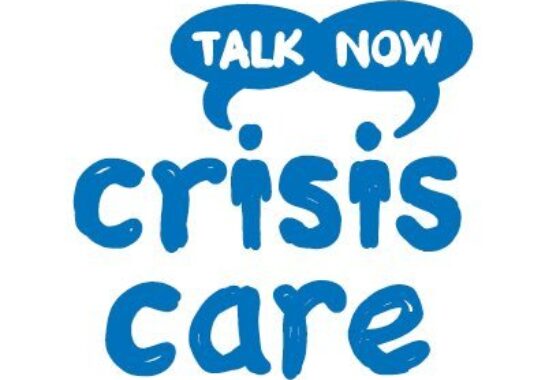NHS 111
We provide phone support for people experiencing a mental health crisis via NHS 111. Call NHS 111 and select the mental health option.
You can also access NHS 111 online via 111.nhs.uk . Anyone can call on your behalf if you can’t make the call yourself.
If you’re deaf or have hearing loss, please use the following link to be connected to a local crisis service: NHS 111 – British Sign Language (BSL) Service.
Suicide Prevention Partnership
The Suicide Prevention Partnership Cheshire and Merseyside has been created to help children and young people by providing resources and support. Find out more on their website.
We are here to help
Our service is for children and young people under the age of 18 with a Liverpool or Sefton GP, others outside of this area will be signposted to the relevant team.
We offer a number of same day or next day emergency appointments for those young people whose mental health needs to be assessed quickly but do not need to attend the Emergency Department for a medical review.
If a young person attends the Emergency Department (ED) in mental health crisis at either Alder Hey or Ormskirk hospital a member of the Crisis Team will be contacted for advice on how they can be supported, this may include a referral to the community CAMHS team, an assessment by our team in ED or an admission to hospital.
If the young person is aged 16 and over and requires a mental healthreview then they would need to attend their local adult Emergency Department where our colleagues in MerseyCare will support them.
Any young person admitted to Alder Hey or Ormskirk hospital due to mental health related concerns will be seen by a member of the Crisis Team for an assessment of their mental health, we will work together with the young person and their parents/carers to facilitate a safe discharge home. This may include liaising with other services such as community CAMHS, or social care to ensure the correct support is in place prior to them going home.
If a young person needs more intensive support, we can offer a package of care that includes seeing them in their own home, multiple times a week – this is offered by our Intensive Support and Home Treatment team. As part of this intervention, we will work with all the people involved with the young person including parents/carers/professionals and support systems.
Meet the team
Our team consists of staff who have a wide range of skills, qualifications, and experience.
The team includes:
- Psychologists
- Nurses
- Psychiatrists
- Therapists
- Mental Health Practitioners
- Social Workers
- Key workers
- Assistant Psychologists
- Admin Support
Treatment
Our goal is to support young people in mental health crisis in a timely way, this means we want to speak to them or see them as soon as possible to prevent them feeling worse and needing to be admitted to hospital.
We do this by supporting their parents/carers/professionals or working directly with them, most of the time young people only need to go into hospital if they need medical treatment or specialised care.
We may see young people only once or we may see them multiple times depending on their level of need, the Intensive Support and Home Treatment team can see young people in their own homes, multiple times over a period of many weeks. Our aim is to support them to improve their mental health and stay safely in their own homes.
CAMHS Referral information
CAMHS accept self-referrals and referrals made by professionals. A referral to the service can be made by using the online platform:
- To refer a child or young person in Sefton or Liverpool, please use: https://seftonliverpoolcamhs.com/
Where are we?
Our main base is the New Catkin Building in Alder Hey, although we do offer appointments at other locations in the community as well as Ormskirk Hospital.
Address:
Crisis Care Team
Catkin Building
Eaton Road
Liverpool
L12 2AP
You can see a little more of our new Catkin base on the below video
